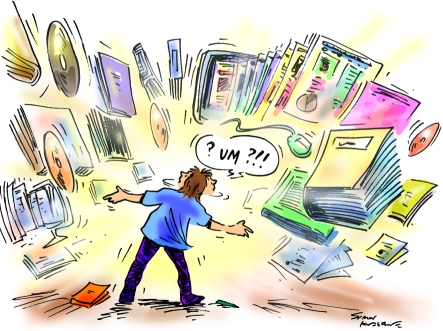By Nur Najmi Jamal
In the world of Internet at present, there are thousands of scientific journals publishing about a million articles a year. There’s also uncounted number of shared information published either by individuals, organisations, politicians or anyone who have access to the Internet.
Since there are so much information available on the screen, the user cannot any more blow the fuse but to learn to adjust. Here are some tips for the user to choose the most accurate information in the Internet.
Firstly, the user has to accept the fact that they cannot consume all the information. So just ignore some. This is due to the information that might differ from one page to another page, thus bear in mind, you cannot consume all these facts.
The second step is to be wary of bias when viewing web pages since Internet introduces the channel that is easily accessible which allows anyone to create a web page or post any topic. Thus the user must verify the validity of the information. Validity of the information can be done by asking a few questions like how did I find this site? What is the site’s domain? Does the site quote the right scholar and is it reliable?
Finally, pick the information that is most accurate and close with the user’s objective. Always be aware if the information that is being shared or published is current or not. This is because you might not want to share any information that is not latest or not in tandem with the present time.
Over the years, people have been spreading news or information which may fall into rumour or false category. So, always be a smart user. Shut the information that you are doubtful and spread it if you are aware of credibility of the information. Smart thinking gives smart using.
Photo courtesy of Tech Consumer
